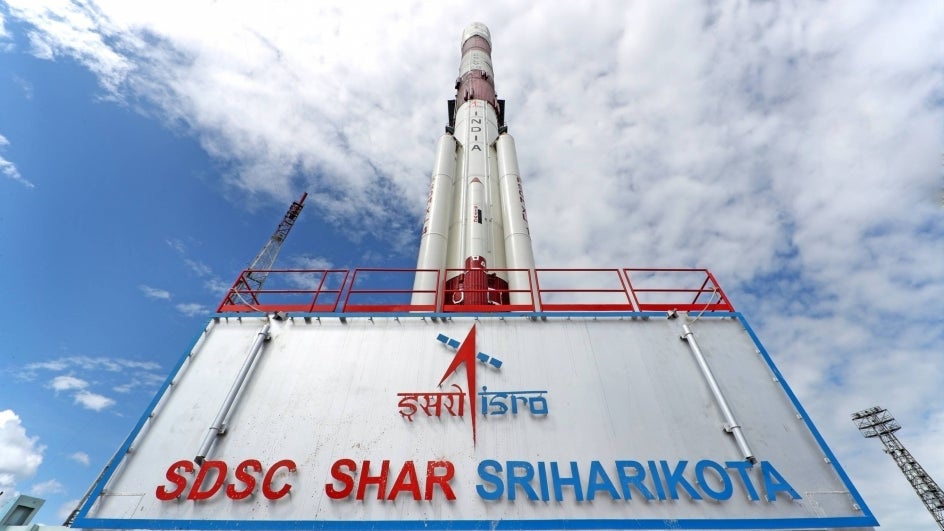
The year 2021 will go down as a landmark year for the space industry players in the private sector and a forgettable one for the government-owned Indian Space Research Organisation (ISRO), said industry officials.
“2021 is the year where a framework has been established for sharing the facilities and expertise of ISRO with startups. This started with the landmark MoU signed between ISRO and Skyroot Aerospace in September. This framework is going to benefit several startups to gain competitive advantage in the commercial space world,” Pawan Kumar Chandana, CEO and Chief Technology Officer, Skyroot Aerospace, told IANS.
He said 2021 was a time when startups proved their capability with successful technology demonstrations and forward-looking policies drafted by the Department of Space (DoS). The appointment of Pawan Kumar Goenka, former Managing Director, Mahindra & Mahindra, as the Chairman of the Indian National Space Promotion and Authorization Centre (IN-SPACe)—the regulator for private players in the space sector—also contributed to it.
The IN-SPACe will also enable the private players’ use of ISRO’s facilities.
“So, 2021 set the stage for a revolutionary 2022. We at Skyroot successfully demonstrated all propulsion technologies in the Vikram Series of launch vehicles and are gearing for a launch next year,” Chandana said.
Concurring with him was Dr Chaitanya Giri, Founder, DAWON Advisory & Intelligence, a consultancy firm.
“The IN-SPACe got strong leadership from India Inc, which is a welcome move on the part of the central government. The central government was able to galvanise ISRO to understand the needs of startups in the space sector,” Giri told IANS.
The private sector rocket makers—Agnikul Cosmos and Skyroot Aerospace—are testing their rocket engines and have signed agreements with the Department of Space to test their rocket systems at ISRO’s facilities.
The year also saw Agnikul Cosmos and Skyroot Aerospace raise additional funding from investors.
The Bengaluru based Syzygy Space Technologies Pvt Ltd, commonly known as Pixxel, has built one satellite and expects to put that into orbit next year.
However, for the government-owned ISRO, it is a year that it would like to forget quickly.
Opening the year with a successful commercial launch, charting the decadal plan, coming out with the Draft National Space Transportation Policy, transferring medical equipment technologies, ISRO suffered a severe setback in the second half of 2021.
On August 12, ISRO’s Geosynchronous Satellite Launch Vehicle (GSLV-F10) rocket, due to a problem in its cryogenic engine, failed to orbit the 2,268 kg Geo-Imaging Satellite-1 (GISAT-1) or EOS-3.
While ISRO said a failure analysis committee would look into the reasons for the failure, it has not made the report public.
For ISRO, this is the second and last space mission in 2021 after the successful launch of Brazilian satellite Amazonia-1 by its rocket Polar Satellite Launch Vehicle (PSLV) earlier this year.
According to ISRO Chairman K. Sivan, the COVID-19 lockdown had crippled space activities as many ISRO employees had contracted the disease.
The ISRO could not realise and fly its small rocket—Small Satellite Launch Vehicle (SSLV)—that can carry satellites weighing up to 500 kg as planned in 2021.
Further uncertainty and confusion were also there in the minds of ISRO officials, with the government setting up a committee to recommend the methodology for right-sizing and optimal utilisation of the existing science and technology (S&T) workforce.
This is being done as ISRO’s focus will be on research and development (R&D).
With the space sector reforms being implemented, greater emphasis is being laid on R&D activities, technology demonstration missions, science and exploration missions, missions of national importance, human space programme and strategic missions realisation by the ISRO, Union Science and Technology Minister Dr Jitendra Singh told the Lok Sabha.
Once the assessment is complete, recruitments will be made, ensuring the right personnel are hired, suiting the job requirements, he added.
Public sector NewSpace India Ltd will take ownership of operational launch vehicles/rockets, commercialise launches, satellites and services. Singh said it would act as an aggregator of user requirements and obtain commitments.
Some other developments are as follows:
- ISRO conducted its first hot test of the System Demonstration Model of the Gaganyaan Service Module Propulsion System. Gaganyaan is the name of India’s first human space mission.
- The space agency successfully carried out the third long-duration hot test of the liquid fuel Vikas Engine for the core L110 liquid stage (engine) of the human-rated GSLV Mk III rocket.
- ISRO demonstrated free-space Quantum Communication over a distance of 300 metres with several technologies developed within the country.
- Chandrayaan-2 Orbiter completed two years going around the moon.
- The four Indian astronauts returned to India last month after completing their training in Russia and will undergo different kinds of training in India.
- NewSpace India Ltd (NSIL) will launch the 4-ton communication satellite GSAT-24 for Tata Sky in 2022.
- The government approved the procurement of GSAT-7C satellite for the Indian Air Force.
**
The above article has been published from a wire agency with minimal modifications to the headline and text.
Credit: Source link



